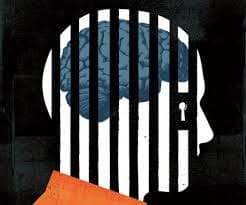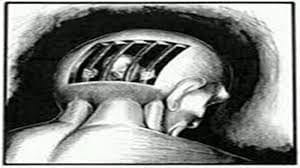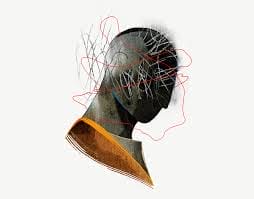by Jason Tarnow | Sep 11, 2020 | Crime, Media, Wheels Of Justice
It has been six years since Matthew de Grood was charged with the murders of five young people at a house party in Calgary, Alberta, and four years since he was found to be Not Criminally Responsible for those offences.
It was concluded that de Grood was suffering from delusions, attributed to undiagnosed schizophrenia, when he caused the deaths of five schoolmates from a local university. He has been in a secure psychiatric facility ever since.
As we have discussed in previous posts, a finding of NCR is neither a determination of guilt, nor an acquittal. It is the beginning of alternative proceedings, which ultimately seek to determine if/when an Accused person can be released back into the community. Like all individuals found NCR, de Grood is required to appear before the Review Board to assess his progress, and to evaluate what freedoms, if any, he may be granted as a result of said progress.

Back in 2016, the Crown suggested it would be making an Application to seek a “High Risk NCR” designation for de Grood. Had this designation been imposed, his appearance before the Review Board would have been extended to take place every three years instead of annually. However – it appears that the Application was never made. This was likely due to the fact that the relevant legislation – the Not Criminally Responsible Reform Act – did not go into force until July 11, 2014, nearly 3 months after the offences took place. As such, the law could not be retroactively applied to de Grood’s case.
At his recent hearing, de Grood’s counsel spoke of the progress he has made during his time at the psychiatric facility. He has been afforded the opportunity to spend the night at his parent’s home on several occasions, taking hospital transportation to and from medical appointments, and volunteering with Meals on Wheels. His counsel submits that de Grood should be granted an absolute discharge due, in part, to the progress he has made with his mental health issues, including being cooperative with taking his medication – and recognizing the devastating consequences that would come as a result of not taking it. He has also demonstrated a high level of remorse for his actions.

Defence counsel further acknowledged that de Grood’s case is extremely high profile. There are concerns regarding the public’s reaction to seeing him on public transit, and how he may face serious adversity in transitioning to a group home.
The Review Board reserved its decision, and accordingly, de Grood remains in a psychiatric facility with heavy restrictions on his freedoms.
by Jason Tarnow | Mar 5, 2020 | Crime, Criminal Attorney, Legal Aid, Police, Social Media, Wheels Of Justice
“No person is criminally responsible for an act committed or an omission made while suffering from a mental disorder that rendered the person incapable of appreciating the nature and quality of the act or omission or of knowing that it was wrong”

He was a student and Captain of Mount Royal University’s hockey team – but that changed on January 13, 2018, after taking a large dose of magic mushrooms.
Shortly after ingesting 4 grams of mushrooms at a house party, Matthew Brown took off all of his clothing and disappeared into the freezing night. Eventually, he came upon the home of a Mount Royal University professor that he had never met before. He broke into her home and beat her with a broken broom handle, leaving her with severe injuries. After leaving her residence, he broke into another home where he was eventually apprehended by the police.
On March 2, 2020, he was acquitted after mounting a successful defence of “non-insane automatism” resulting from severe self-intoxication.
Mr. Brown was acquitted and walked out of court a free man. His actions were found to be involuntary – but not by reason of mental disorder. His defence of non-insane automatism resulting from severe self-intoxication was only available after a pre-trial ruling in which a judge found that Section 33.1 of the Criminal Code, prohibiting self-intoxication as a defence, was unconstitutional.
Non-insane automatism and insane automatism both involve an Accused person that was unaware of the consequences of their actions at the time of the offence, and therefore could not form intent required to prosecute the offence.
In Mr. Brown’s case, his automatism ended when the effects of the drugs wore off, and he was left with no memory of the event. Since his actions were not attributed to a disease that would have recurring symptoms, a Not Criminally Responsible according to Mental Disorder (NCRMD) finding would have been inappropriate.
 A finding of NCRMD relates to automatism as a consequence of a mental disorder. Unlike automatism resulting from intoxication, it does not result in an acquittal. NCRMD is most commonly seen in cases where an Accused suffers from severe mental illness, such as schizophrenia. Across Canada, the number of Accused deemed NCRMD is small, however, media attention on these particular cases often results in public outrage.
A finding of NCRMD relates to automatism as a consequence of a mental disorder. Unlike automatism resulting from intoxication, it does not result in an acquittal. NCRMD is most commonly seen in cases where an Accused suffers from severe mental illness, such as schizophrenia. Across Canada, the number of Accused deemed NCRMD is small, however, media attention on these particular cases often results in public outrage.
After a judge has determined that an Accused is NCRMD, the case is usually handed over to the Review Board (governed by Province/Territory) where there are three possible outcomes:
- Absolute Discharge
- Conditional Discharge
- Detention in a hospital
While most cases do end up under the authority of the Review Board, the Court of hearing has the discretion to proceed to disposition if it feels appropriate in the circumstances. If the Court orders an Absolute Discharge (the only available option when the Accused has been found not to pose a significant risk to the public), the matter is concluded. If the Court orders a conditional discharge, or detention in a hospital, the Review Board must review the matter again with 90 days. In any circumstance, the Court or Review Board must impose whichever sentence is the least onerous and least restrictive on the Accused, all while balancing protection of the public and the interests, liberty and dignity of the Accused. There have been success stories, (which may again cause unnecessary alarm to the public) that demonstrate how effective rehabilitation of mentally ill offenders is far from hopeless. It is also important to note that the statistics surrounding NCRMD cases show that the prevalence of an NCRMD finding in relation to violent offences are low.
by Jason Tarnow | Aug 31, 2017 | Crime, Legal Rights, Media, Police, Politics, Social Media, Wheels Of Justice
A Justice of the BC Supreme Court refused to label Allan Schoenborn as a “High Risk Offender”, meaning that designation has still not been successfully applied since it was introduced by the Harper Government.
Allan Schoenborn was found guilty, but not criminally responsible for the murders of his 3 young children, whom he believed had become victims of sexual abuse. Psychiatrists who assessed him unanimously agreed that he had been suffering from delusions and other symptoms consistent with a schizoaffective type disorder. As a result, it was determined that he did not bear legal culpability for his actions.
Although he was found to not be responsible for his actions, he was remanded to Colony Farm, a Forensic Psychiatric Hospital, for an indefinite period of time (as is standard with all NCR offenders).
The purpose of the Not Criminally Responsible, High Risk Offender legislation is aimed at designating offenders found not criminally responsible by reason of mental disorder as “high risk” if it can be proven that they pose a serious threat of inflicting grave physical or psychological harm to another person.
This legislation is strictly applicable to offenders found not criminally responsible – in essence, it is punitive legal recourse only available for individuals who have already been deemed as severely mentally ill.
In her decision, Justice Martha Devlin determined that there was no reason to believe that Schoenborn met the criteria necessary for a High Risk designation. She noted that his current mental condition, along with the opinions of the experts overseeing his care, does not reflect him posing a serious threat to the public.
If the designation had been granted, it would have excluded Schoenborn from receiving escorted outings into the community, and would create a 3 year period between his review board hearings, as opposed to 1 year as is current procedure.
One of the biggest concerns we see in this legislation, is the effect it may have on offenders who should be entering a plea of not criminally responsible. The problem is that if an offender is likely to meet the criteria of a High Risk Offender once being deemed NCR, they may opt to take a determinate jail sentence simply because a High Risk Offender designation could seriously impede their ability to regain freedom from the psychiatric facility where they are being held. If an Accused person is told “plead guilty and you’ll get 10 years in jail” or given the option of “if you establish a NCR defence, there is a risk of a High Offender Designation, and I can’t tell you with any certainty whatsoever when, or if, you will ever be freed”, which option will likely seem more attractive?
Interestingly enough, Mr. Schoenborn’s high profile case was basically singled out by Stephen Harper when the “High Risk Designation for NCR Offenders” legislation was tabled in 2013. The decision by Justice Devlin demonstrates why impartiality and transparency are vital to the survival of judicial process: although the facts related to this case are heinous and disturbing, a path has been carved for Mr. Schoenborn, and Justice Devlin refused to hinder his progress. His NCR designation was not established in haste, and each step of his treatment since that time has been methodical and closely monitored. He requires intensive treatment and rehabilitation in order to, one day, have an opportunity at freedom.
Navigating through the criminal justice system as an Accused person is an intimidating experience. It is compounded when you are dealing with a mental illness. We are experienced in liaising with clients who suffer from severe mental health problems. We understand that compassion, respect and understanding are of fundamental importance when confronting with these issues. We are conveniently located in Richmond, B.C. only a few steps away from Brighouse Station on the Canada Line, which brings you from various locations in Metro Vancouver in 20 minutes. We service all areas of the lower mainland (including but not limited to Surrey, New Westminster, Port Coquitlam, North Vancouver, and Abbotsford) the interior of B.C. (including but not limited to Cranbrook, Kelowna, Kamloops, and Salmon Arm), Northern B.C. (including but not limited to Prince George, Prince Rupert, and Quesnel) and in the Yukon Territory where we offer services in Whitehorse, Dawson City, and Old Crow. Contact our office today for your initial consultation.




 A finding of NCRMD relates to automatism as a consequence of a mental disorder. Unlike automatism resulting from intoxication, it does not result in an acquittal. NCRMD is most commonly seen in cases where an Accused suffers from severe mental illness, such as schizophrenia. Across Canada, the number of Accused deemed NCRMD is small, however, media attention on these particular cases often results in public outrage.
A finding of NCRMD relates to automatism as a consequence of a mental disorder. Unlike automatism resulting from intoxication, it does not result in an acquittal. NCRMD is most commonly seen in cases where an Accused suffers from severe mental illness, such as schizophrenia. Across Canada, the number of Accused deemed NCRMD is small, however, media attention on these particular cases often results in public outrage.